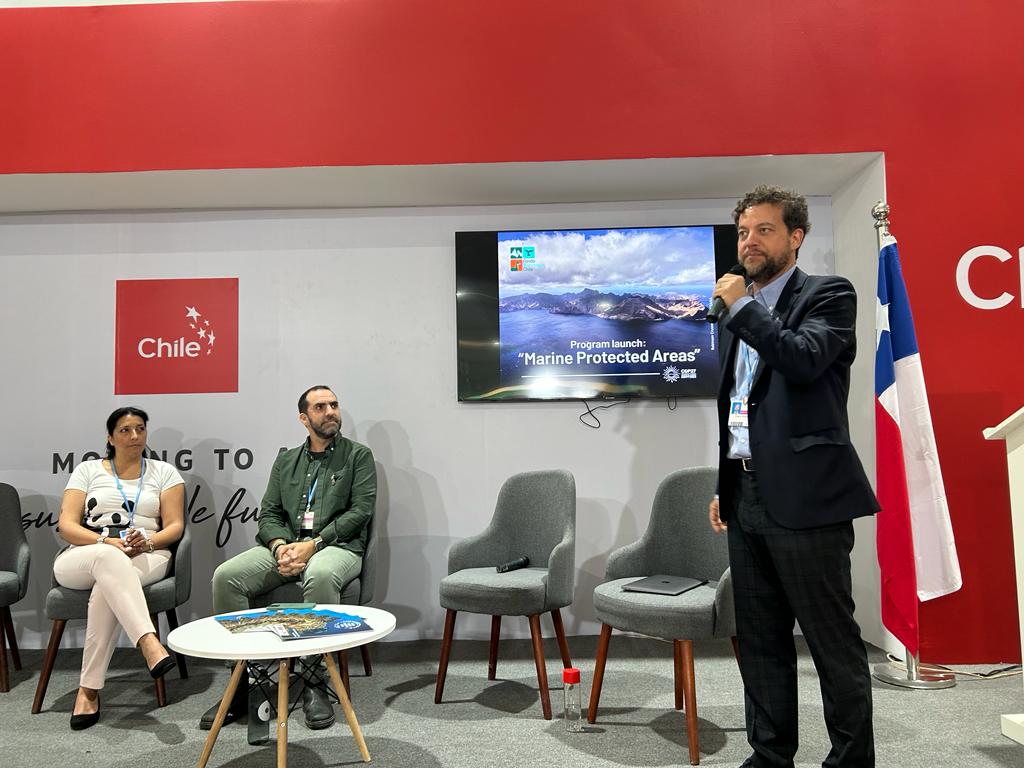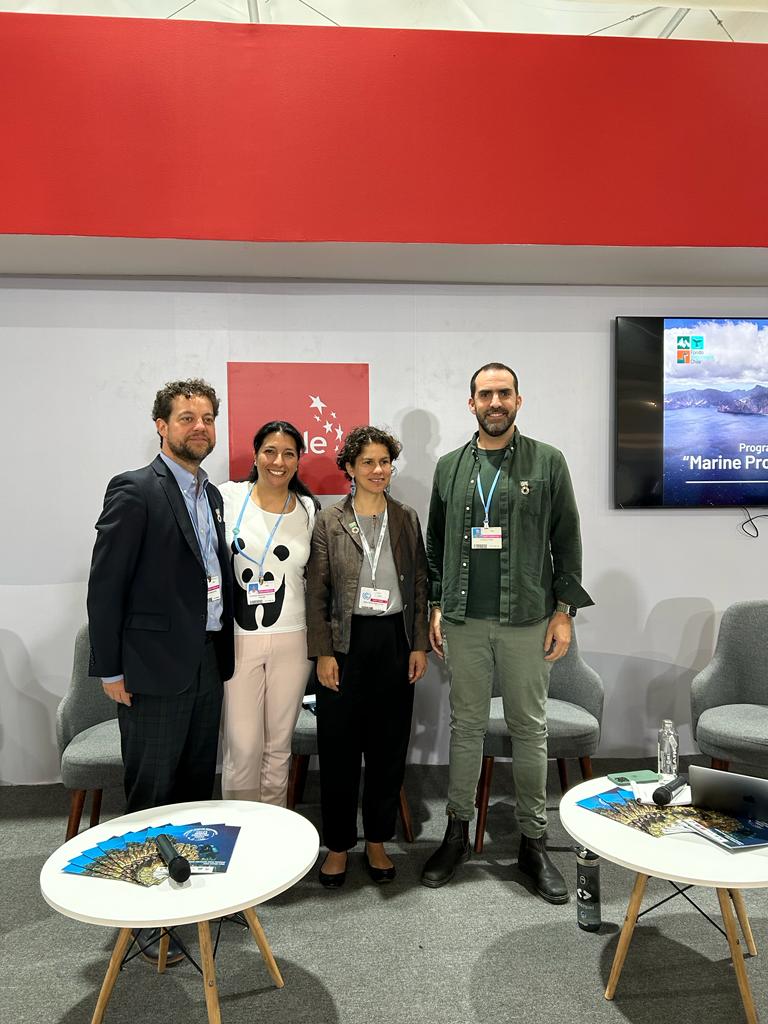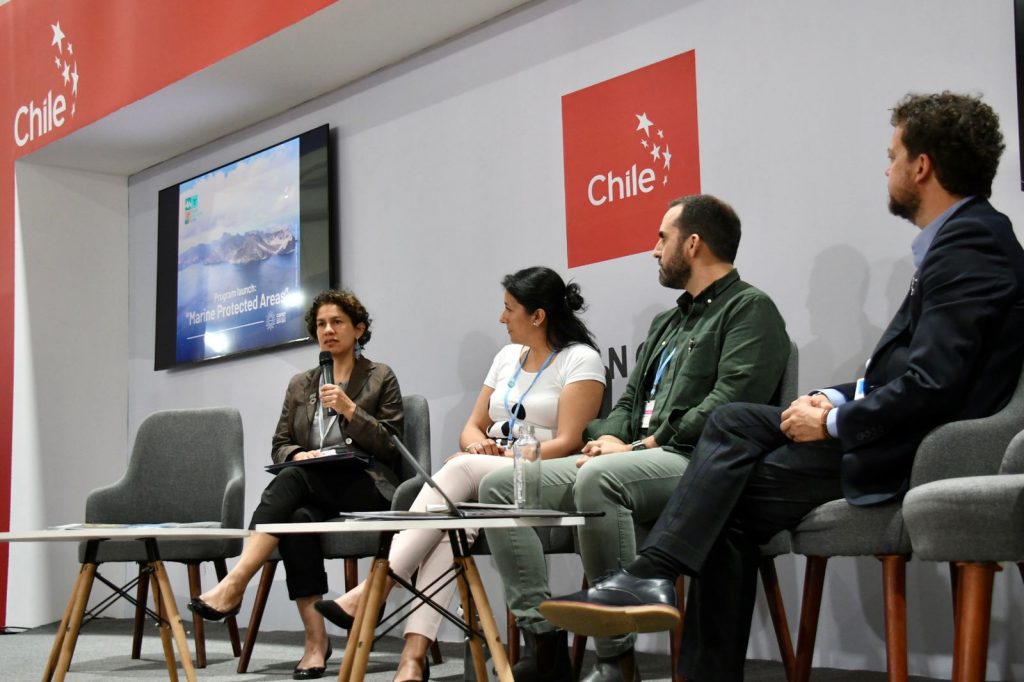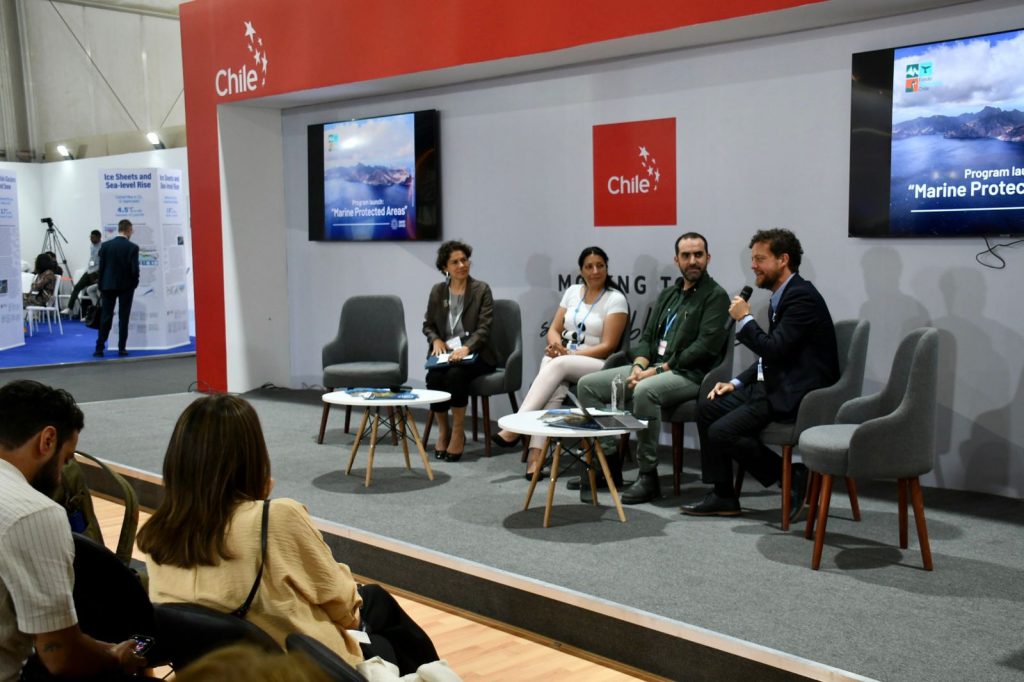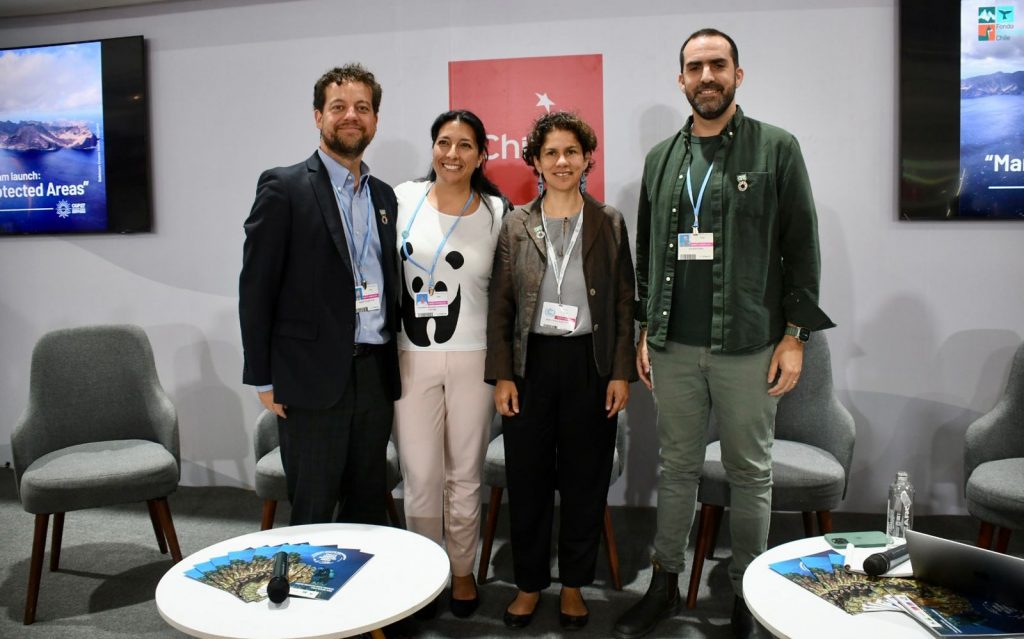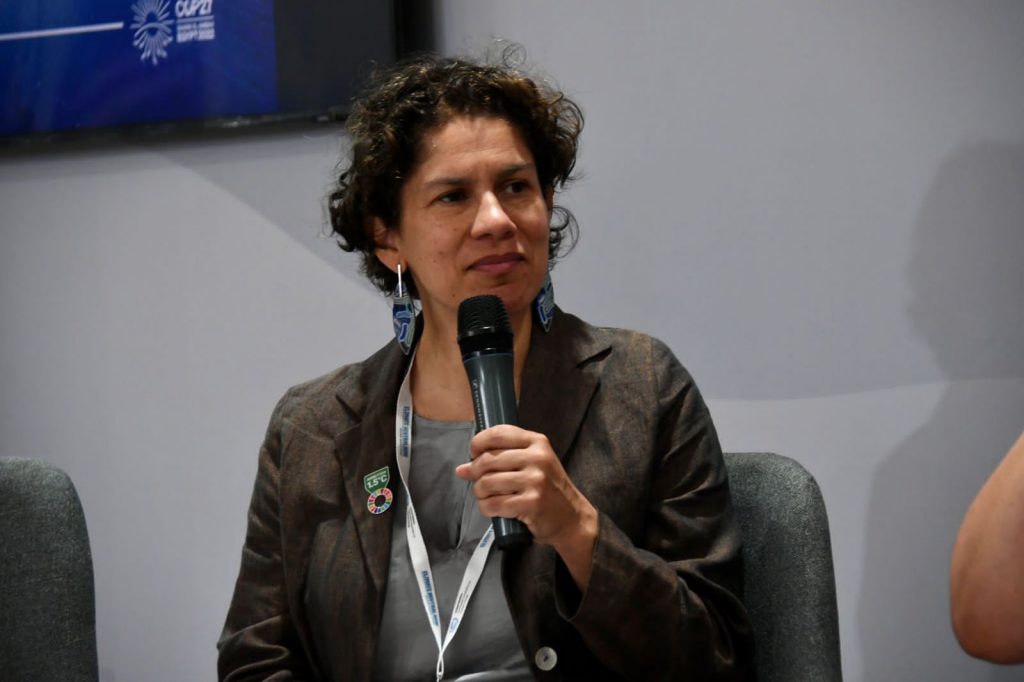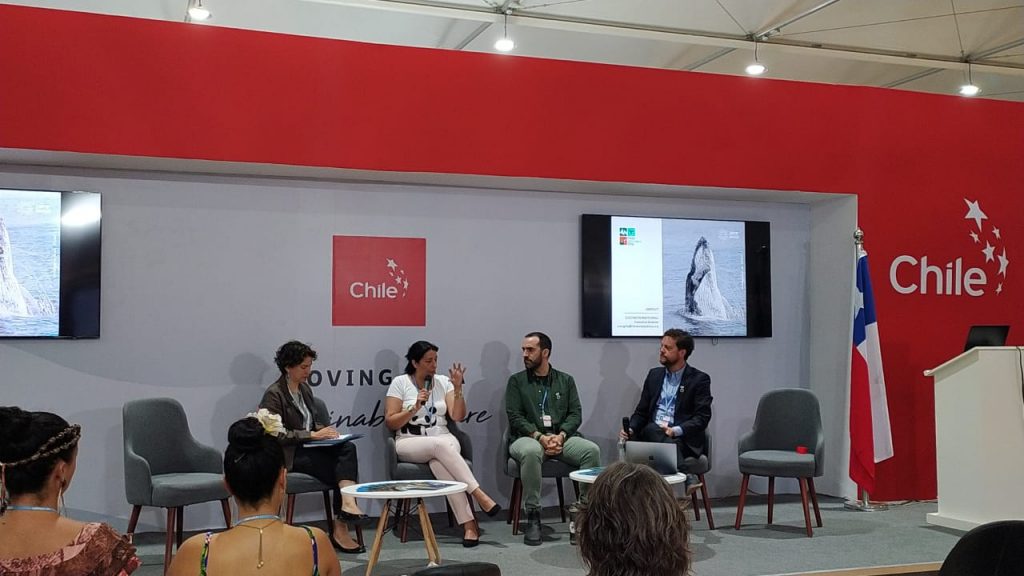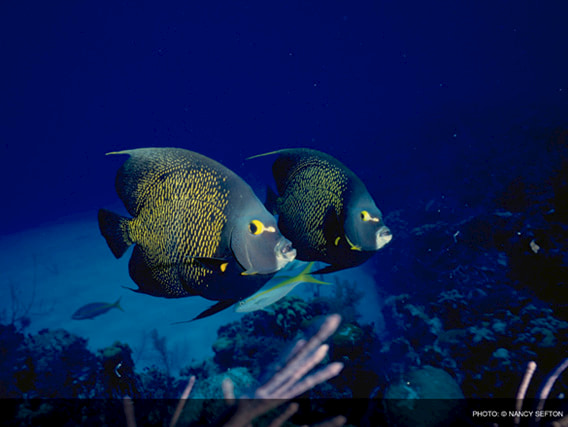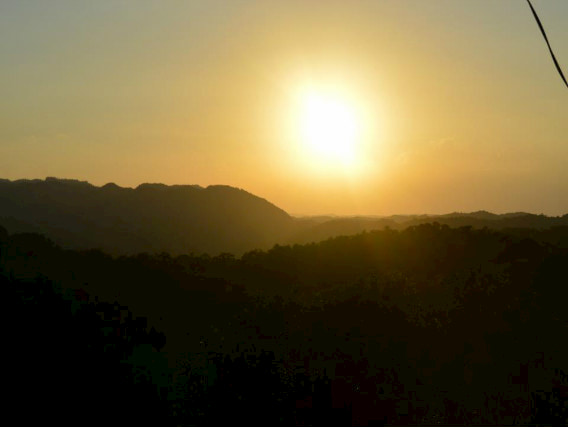En un evento realizado en el Pabellón de Chile en COP27, junto a la Ministra de Medio Ambiente, Maisa Rojas, y miembros de la sociedad civil, este fondo ambiental que busca movilizar y administrar recursos para la conservación de la naturaleza en Chile, lanzó el programa para la gestión efectiva de las áreas marinas protegidas de Chile.
Con 83.500 kilómetros de costa, incluyendo las de islas y fiordos de la Patagonia, Chile tiene la gran urgencia de abordar el desafío de la conservación efectiva de ecosistemas marinos y costeros; además de proteger el rol activo del océano como regulador del termostato del planeta, al absorber un tercio de las emisiones de gases de efecto invernadero, una de las principales responsables de la crisis climática. El Sistema de Áreas Marinas Protegidas de Chile es el quinto más extenso del mundo, cubriendo 43% de la Zona Económica Exclusiva del país.
Es en este contexto que Fondo Naturaleza Chile lanzó en plena COP 27 el Programa de Áreas Marinas Protegidas, en un evento realizado junto a la Ministra de Medio Ambiente, Maisa Rojas; Yacqueline Montecinos, coordinadora de biodiversidad y políticas oceánicas de WWF Chile; Leo Prieto, fundador de Lemu e integrante de directorio del Fondo Naturaleza Chile. El lanzamiento fue realizado por Eugenio Rengifo, director ejecutivo de Fondo Naturaleza Chile, y quien moderó el panel de conversación.
“El Programa de Áreas Marinas Protegidas de Fondo Naturaleza Chile busca ayudar a la conservación efectiva de nuestras Áreas Marinas Protegidas. Chile es el quinto país que tiene más áreas marinas protegidas dentro de su zona económica exclusiva y con este financiamiento la idea es que pasemos a una protección efectiva”, explicó la Ministra de Medio Ambiente, Maisa Rojas, desde COP27. “Si hacemos esto, en conjunto con el Estado, esperamos que sea un ejemplo y se pueda replicar para otros países dentro de la región para lograr la protección efectiva de un 30% de la naturaleza al año 2030, tal como es nuestro compromiso frente al Convenio sobre Diversidad Biológica”, agregó.
Se trata de un programa que integra un plan de gestión efectiva en áreas marinas protegidas (AMP) para reducir la degradación de estos ecosistemas; fortalecer la adaptación a los efectos de la crisis climática que los afectan, tanto de la propia biodiversidad marina como de las comunidades humanas; contribuir desde las AMP a iniciativas de carbono azul; y también dar oportunidades de desarrollo sostenible a esas comunidades vinculadas al océano. Sólo en el caso de las áreas marinas protegidas, el déficit de presupuesto para su operación el año 2020 era de 96% (-$7.607 millones de pesos chilenos), por lo que una de las tareas urgentes del Fondo Naturaleza Chile es buscar financiamiento para aportar a la sostenibilidad financiera de la conservación chilena en el largo plazo. Este fondo trabaja en desarrollar distintos programas diseñados para atender prioridades nacionales de conservación.
“Chile hoy puede avanzar en reducir la brecha de financiamiento para la conservación efectiva a través del fondo ambiental Fondo Naturaleza Chile, el cual cumple con los más altos estándares que permitirán movilizar y administrar recursos públicos y privados para la conservación de la naturaleza en Chile, fortaleciendo las comunidades y organizaciones de la Sociedad Civil”, explicó Eugenio Rengifo, director ejecutivo del Fondo Naturaleza Chile. “Desde COP27 lanzamos el sueño de conseguir una conservación efectiva para nuestras AMP y alcanzar la meta de 350 millones de dólares para los próximos 10 años que nos van a dar la oportunidad de llevar esos recursos a los territorios y entregar de esa manera una sostenibilidad financiera a las comunidades que trabajan con la conservación marina”, agregó
“Este programa consiste en un mecanismo de canalización de fondos para la implementación efectiva de nuestras AMP, para así traer beneficios a la humanidad (…), pero también beneficios de conservación a las especies de nuestro maritorio desde las grandes ballenas que tienen un rol tremendamente importante en la captura de CO2 hasta los corales de agua fría que se encuentran en la Patagonia chilena y así poder mostrar al mundo cómo Chile hace su contribución a nivel local nacional global en términos de cambio climático y conservación de nuestros océanos”, dijo la coordinadora de biodiversidad y políticas oceánicas de WWF Chile, Yacqueline Montecinos.
“Es importante entender que cuando hablamos de biodiversidad, no estamos hablando solamente de cuidar esas especies, sino que también las funciones que tienen en el ecosistema, incluyendo funciones críticas para poder frenar la crisis climática”, comentó Leo Prieto, integrante del directorio de Fondo Naturaleza Chile y fundador de Lemu.
Un pilar clave del modelo de trabajo de Fondo Naturaleza Chile es la colaboración. Es así como el Programa de Áreas Marinas Protegidas que se lanza en COP27 se trabajó entre Ministerio de Medio Ambiente, SERNAPESCA, Oceana, WCS y WWF.
Más información: www.fondonaturaleza.org

Periodista.
Contacto: mhess@fondonaturaleza.org
